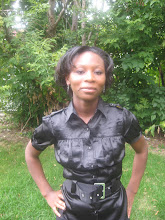John Donne through the use of various lit techs such as repition, rhetorical questioning and illussions creates an optimistically compassionate mood in his poem The Good-morrow. Though this poem is ambigious in its subject and its narrator the techniques used to write this rather short poem create and undeniably romantic and engaging mood.
Donne by posing a variety of rhetorical questions such as,"...were we not weaned til then?" expresses how consumed the narrator is with their relationship and how all events prior to this relationship seem meaningless and unimportant. The connotation of these rhetotrical questions which challenge the value of anytime these two lovers don't spend together contributes to the romantic and engaing mood of this poem because not only do you get a sense of complete hapiness from the narrator because he feels his will defy all time but also because he speaks of the fantastic lengths that their love will overcome and how completely wonderful his relationship is.
The repition of the word let by Donne suggests that the narrator is hopeless optimistic in the endless possibilities and capability of his love. This infference can be made because the narrator says,"let maps to others, worlds on worlds have shown,let us possess one world, each hath one, and is one" which means that he feels that their love is something so intense and magical that others may have never expressed its wonders and that they need a map to travel into such a wonderful relationship. This repition also contributes to the romanitc nature of this poem because the narrator, in his extreme infatuation, speaks of him and his lover becoming a single entity and acting as models of the ideal relationship which connotes some sense of insanity in the narrator's mind because he feels as though he and his lover are perfect and that they should serve as inspiration to all people.
Like the rhetorical questions and repition the allusion that is made to the Seven Sleeper's in this poem also adds to the optimistic nature of the narrator beacuse he compares them to christians that were protected by God which suggests that he feels that his relationship will be both everlasting and celestially sanctioned.
Subscribe to:
Post Comments (Atom)

I agree with that last part- the security of holy protection, especially because Christianity was so reveredin Donne's day. But the whole meaning of the poem in general-the whole "love is our everlasting protection" and oooh"our souls
ReplyDeleteare forever bound by our love and all but our relationship was idle time-don't you think its sort of narrow minded? I mean, Donne seems to be saying that before the relationship came along, these two lovers were just biding time and staring into space, saving themselves for love-he certainly seems to say that love is one of, if not the purpose of life. Also-haven't you heard this whole lovey soul-y connection, everlasting love-y fluff too many times already?
I agree with most of your comments, especially your notes about the importance of rhetorical questions. I just wanted to add something about the repetition of theword "let." I think it shows Donne's indifference to everything that isn't directly related to his love. Like before, when he can barely remember what he did before he met his love, Donne just is completely absorbed in his current love. He says everyone else can keep exploring and looking for happiness and adventure in new places, but all I need is right here in this room with you.
ReplyDeletehmm, i wouldn't say the subject is ambiguous because he seems to be very stuck on the love aspect. he explains how they are two halves of a whole and how he repeats the word love a lot i can see how it would easily be about love but overall your analysis was good.
ReplyDelete